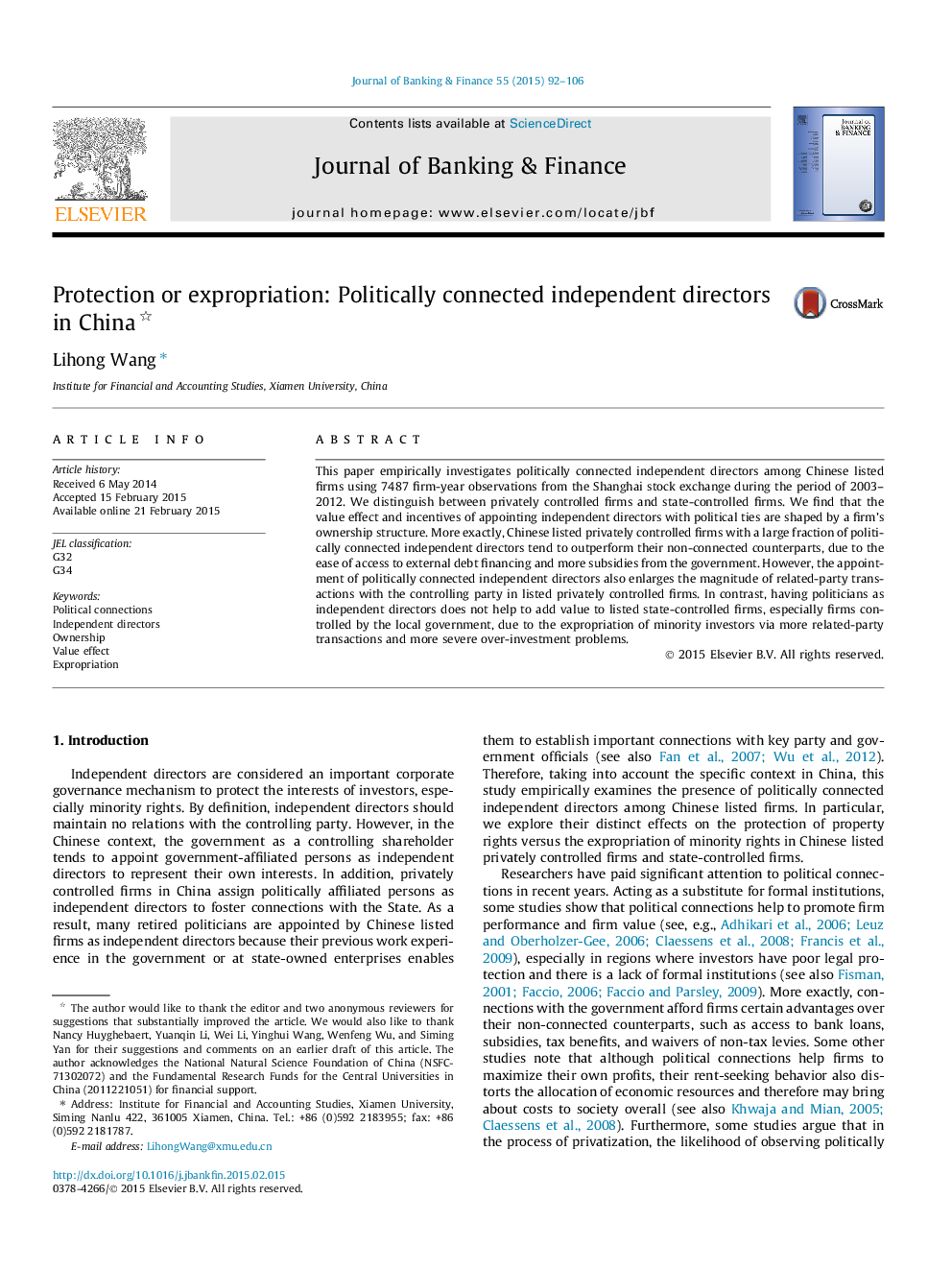| Article ID | Journal | Published Year | Pages | File Type |
|---|---|---|---|---|
| 5088626 | Journal of Banking & Finance | 2015 | 15 Pages |
Abstract
This paper empirically investigates politically connected independent directors among Chinese listed firms using 7487 firm-year observations from the Shanghai stock exchange during the period of 2003-2012. We distinguish between privately controlled firms and state-controlled firms. We find that the value effect and incentives of appointing independent directors with political ties are shaped by a firm's ownership structure. More exactly, Chinese listed privately controlled firms with a large fraction of politically connected independent directors tend to outperform their non-connected counterparts, due to the ease of access to external debt financing and more subsidies from the government. However, the appointment of politically connected independent directors also enlarges the magnitude of related-party transactions with the controlling party in listed privately controlled firms. In contrast, having politicians as independent directors does not help to add value to listed state-controlled firms, especially firms controlled by the local government, due to the expropriation of minority investors via more related-party transactions and more severe over-investment problems.
Related Topics
Social Sciences and Humanities
Economics, Econometrics and Finance
Economics and Econometrics
Authors
Lihong Wang,
